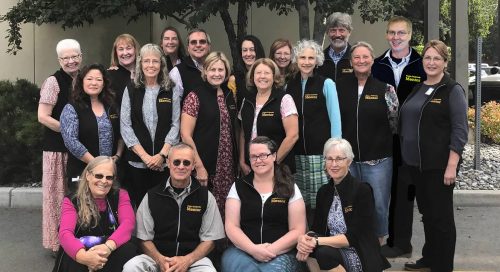UAF receives $8 million for teacher mentoring in Alaska
December 22, 2020
Tanya Clayton
907-474-7541
The University of Alaska Fairbanks has received a five-year, $8 million grant from
the U.S. Department of Education to increase the reach and effectiveness of mentor-based
teaching throughout Alaska.
The grant will expand the Alaska Statewide Mentor Project, which provides support
for early-career educators.

The ASMP, which began in 2003, is one of four projects in UAF's K-12 Outreach program. The research-based ASMP aims to develop teachers who are responsive to the diverse cultural backgrounds of all students.
This is achieved principally through educator mentoring. By providing professional mentoring to first- and second-year teachers, the program significantly increases the number of teachers who remain in the profession.
The mentoring project, led by program manager Sue McIntosh, has increased the percentage of teachers who continue in their profession past five years to over 90%. In contrast, about 50% of nonmentored teachers leave the profession within the first five years.
The ASMP and another K-12 Outreach project, Educators Rising, have proven track records of success. Glenda Findlay, K-12 Outreach director, wants to see that continue.
“We can prove we have a validated mentoring model,” Findlay said. “The next step is to take a look at the delivery and see if we can maintain the quality of service while making it even more cost effective.”
The Department of Education award will fund research into the instructional success and cost effectiveness of both in-person and virtual instruction delivery methods. The project is expected to benefit more than 7,500 students throughout Alaska.
ASMP researchers anticipate that the expanded distance-delivery methods will net a savings of over 30% per teacher, mainly by reducing travel costs. Quality mentoring, coupled with cost-saving measures, will be a boon to remote schools and those serving largely Alaska Native communities. Such areas commonly experience a high rate of teacher turnover and a shortage of teachers who are experienced in Indigenous ways of teaching and learning.
Findlay hopes the expansion and program enhancement will leave a lasting legacy throughout rural Alaska communities.
“We want a fiscally sound, sustainable model in rural Alaska,” she said. “Then it’s something that will remain, for years to come.”


